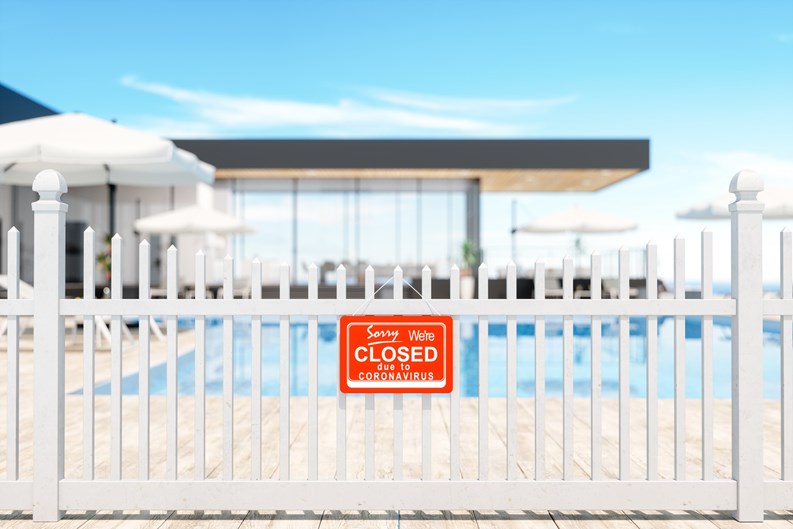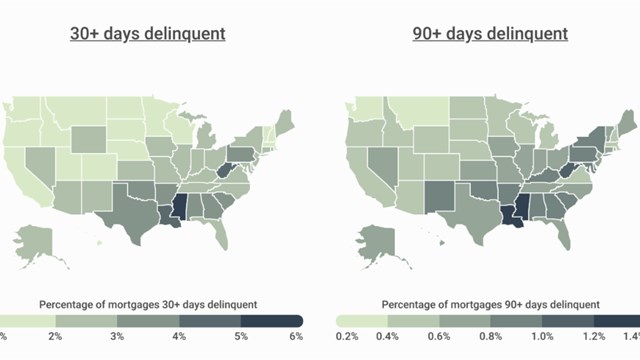As the COVID crisis has evolved, and states have moved into different phases of reopening, swimming pools and other aquatic amenities have been flashpoints for some of the biggest, most contentious questions around reopening (or not) common areas in multifamily communities, including condos, HOAs, and co-op buildings. To get a better sense of how boards in different regions of the country are handling their own pool processes, the Community Associations Institute (CAI) conducted a survey on the topic from late June to early July, collecting data from more than 1,000 respondents, including board members, managers, and other stakeholders representing more than 2,200 communities from 39 states.
According to the report (a printable PDF of the full report can be found here: https://www.caionline.org/Documents/CAs%26Covid19ImpactSurveyPools070820.pdf) “Some of the biggest questions community association board members and managers have faced during the COVID-19 pandemic and reopening phases have centered around pools. Is it (or will it) open? Why isn’t it open? Why haven’t my assessments decreased if the pool is closed? What practices do I need to follow if the pool is open? How is the community keeping residents who use the pool safe?”
Like the pandemic itself, the pool issue is complicated, and there is no one-size-fits-all - or even fits-most - answer to these questions. According to CAI, “Community associations have to consider guidance from the Centers for Disease Control and Prevention (CDC), state and local requirements, their ability to set and enforce rules, liability, resident sentiment, safety, expenses, and more. The decisions should be tailored to each community and specific to their unique circumstances.”
Highlights of the Findings
According to CAI’s survey results, a significant portion (41%) of community association pools have not opened this season because of the COVID-19 pandemic, while 30% of communities have opened their pools following a delay.
According to the results, only 7% of survey respondents reported opening their pool on time this season. Respondents said that several factors were behind the decision to delay opening or decline to open at all, including: concerns about legal liability (58%); fear of spreading COVID-19 (50%); and recommendations from their legal counsel (48%). The communities that did opt to open their pool reported implementing new procedures, including: banning guests (60%); requiring residents to sign a liability waiver (40%); and requiring residents to bring their own chairs (37%). In roughly 35% of communities, respondents also said that pool-related expenses have been higher than budgeted due to COVID-19.
“The question to open a community association pool has been one of the most controversial and complicated topics facing condominiums and homeowners associations (HOAs) this season,” says Thomas M. Skiba, CAE, CAI’s chief executive officer. “Unfortunately, it’s not a one-size-fits-all model, and the decisions to open or not open are tailored to each community and specific to their unique circumstances. Communities have to consider guidance from the Centers for Disease Control and Prevention, state and local requirements, the association’s ability to set and enforce rules, liability, resident sentiment, safety, and expenses. CAI is encouraging state and federal legislators to provide limited liability protections to community associations that, after careful consideration and compliance with the appropriate government guidelines, have decided to open pools for their residents.”
The report also adds that “Some additional findings could reflect the different approaches taken by governments in each state to slowing the spread of COVID-19 and the differing philosophies on reopening. For example:
More than 80% of respondents in New Jersey, 56% in Maryland, and 55% in Pennsylvania reported their pool is closed. These states had some of the more prolonged and restrictive stay-at-home orders.
By contrast, fewer than 10% of respondents in Florida, 24% in Texas, and 29% in North Carolina reported their pool is closed. These states had some of the shorter and least restrictive stay-at-home orders.
In New Jersey in particular, fear of exposure to legal liability (84%), lack of insurance coverage (74%), and attorney recommendation (74%) kept pools closed.
For the communities that opened pools, those in Texas (71%), Nevada (71%), Arizona (70%), and California (66%) lead the way in prohibiting guests.
In Texas, 65% of communities require residents to sign a liability waiver, and 44% require residents to bring their own chairs.”
For more information about the impact of COVID-19 and community associations, visit CAI’s Coronavirus Resources page.
Cooper Smith is a staff writer/reporter with The New Jersey Cooperator.







Leave a Comment